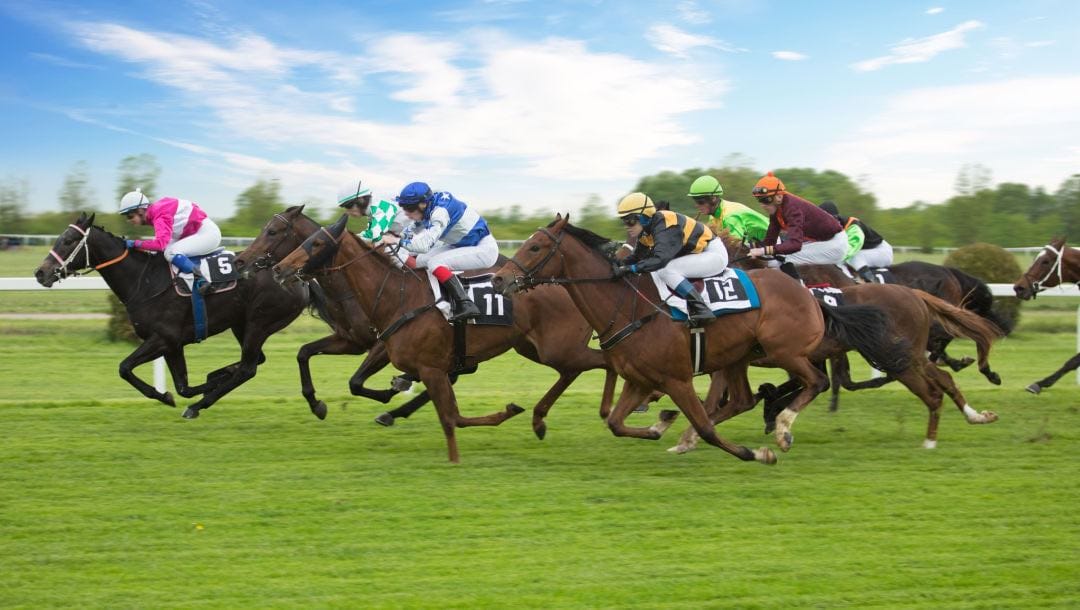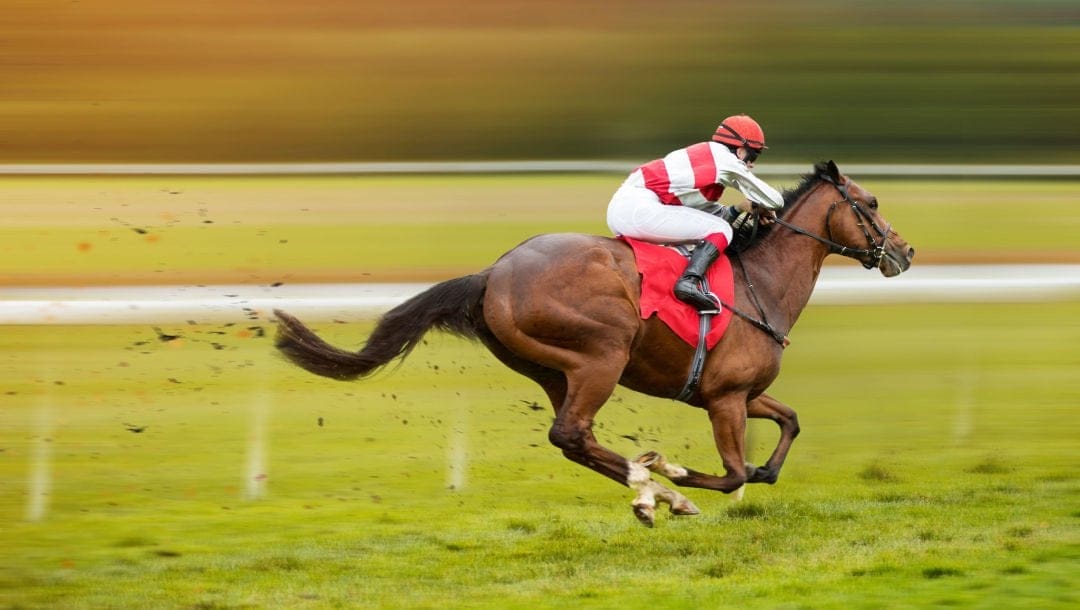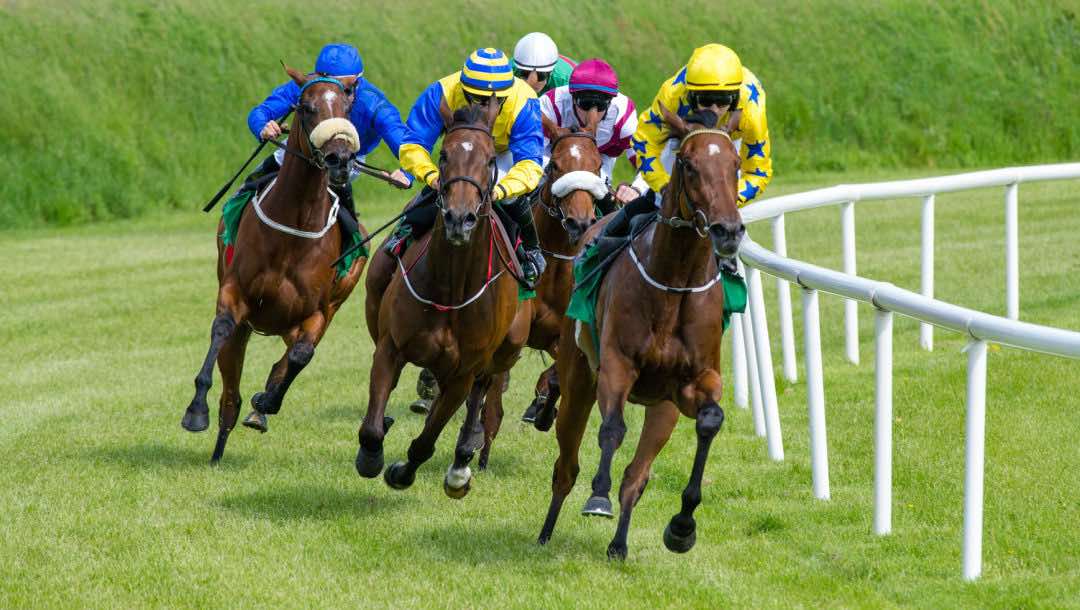Horse races are one of the easiest sports to bet on. However, many horse betting beginners still find it hard to understand the different grades that can be found in the handicap rating system. Luckily, we’ve put together a complete guide to the class system in horse racing betting with explanations for the different kinds of races you can bet on. Let’s get started so you’ll feel confident when diving into live betting.
Why is there a class system in horse racing?
When you’re learning how to bet on horses, learning the class system might seem like an unnecessary hurdle. But there is a method to the madness. With thousands of horses training, not all of them are equal. The class system divides the horses into groups according to their abilities to ensure races are fair. The system makes it easier to ensure the industry’s quality standards are met at each level and that only horses with comparable abilities race against each other.
The class system is standardized and it’s used by racing authorities around the world to group their horses to coordinate races. The handicap rating system might seem confusing, but it keeps games competitive, exciting and fair. Next time you’re betting on a neck-and-neck horse race, remember the class system is the foundation of fair races.
What determines the class of a horse?
No one knows a horse like a trainer does. The trainer understands that both a horse’s nature and its training will decide the level they can race at. It’s the trainer’s job to select the races a horse can compete in. But they can’t simply put the horse in a race where they will win every time. The type of race a horse runs in affects how much they earn when they win and the trainers earn a commission from the prize money. This encourages trainers to put their horses in a position or class where they can win often but one where they can earn as much money as possible.
As a gambler, this system means you don’t have to worry about races being unfair. All races are competitive, but even an underdog has a chance to win. When you place a parlay bet in horse racing, all outcomes are possible because of the class system.
In the US and Canada, claiming races ensure that every horse runs in the most suitable category for its strengths and abilities. Let’s take a look at the different types of races, like the claiming race, and how they work together with the class system.
Different types of horse races
The class of a horse matters when you’re betting on a race and so does the race type. Before we dive into grades and classes, let’s look at the various types of racing events.

Conditions stakes race
A conditions stake race is a handicap flat race where the weights a horse will race with are decided based on the age and sex of the horse and not its recent performances. The Group 1 Melbourne Cup is a conditions stake race.
Claiming stakes race
Claiming stakes races are used in flat racing to set selling prices on racehorses based on their handicap. A maximum and minimum claim price is set for potential buyers and a maximum weight is set for the horse.
Classified stakes race
This is a flat race run by horses that have participated in at least three races or run twice and won once. There is a strict maximum rating in these races that prevents weak horses from entering, but horses with a higher rating can enter if they carry a weight penalty.
Heritage handicap race
A heritage handicap has a large monetary prize and it’s open to horses rated 105 or below.
Maiden race
A maiden race is a flat event run by horses that have never won a race. If a horse wins this race, it will secure a handicap rating, allowing it to enter regular handicap races.
Nursery race
Nursery races are flat handicap races for two-year-old horses.
Novice race
A racing event open to two- or three-year-old flat racehorses with up to two career wins.
Selling race
In a selling race, the winning horse is put up for public auction at the end of the event.
Bumper race
A bumper race is a National Hunt flat race for horses between the ages of four and six. These horses are new to National Hunt races.
Horse racing classes and what they mean
To understand horse classes and grades, we must distinguish between flat and jump races. As the name suggests, flat races are run on a level track without hurdles or jumps. Jump races, also known as National Hunt races, are run on a racetrack with obstacles and jumps.
Each of these two types of horse races has its own classes and grades. Let’s look at how classification works for flat races and jump races.

Flat racing class system
Flat races are divided into seven classes, with class 1 races being the most elite.
Class 1 races
These races, also called group or pattern races, represent the highest level of thoroughbred racing. These elite races are run by the top minority of horses in the industry and can be further divided into three groups.
Group 1: This highest race level is open to horses of various age groups. These events offer the most prize money and receive extensive media coverage. Horses in Group 1 races usually have the same weight to level the playing field.
Group 2: Even though they’re one level below Group 1 races, Group 2 races still attract some of the best thoroughbred horses and offer large prizes and extensive media coverage. Some horses compete in Group 1 and 2 races during a season.
Group 3: Group 3 races don’t usually attract the strongest horses, but they can be used as a trial for champion racehorses aiming for the Group 1 and 2 categories.
Listed races: Though still part of Class 1, listed races are below group-level races. Listed events attract new and low-rated horses who are still building their careers and improving their ratings.
Class 2–7 races
In the last level of racing, horses are ranked with an official handicap based on their ability. The handicap is the weight a horse must carry to balance the field. Each handicap correlates with a class. Weights are assigned to a horse based on its age, sex and recent performances. These races are divided into the following seven classes:
- Class 1: Listed handicap races for horses with ratings over 96.
- Class 2: Handicaps for horses rated between 86 and 110, including Heritage Handicap races.
- Class 3: Handicap races for horses between 76 and 95.
- Class 4: Handicap races for horses rated between 66 and 85.
- Class 5: Handicap races for horses between 56 and 75.
- Class 6: Handicaps for horses rated between 46 and 65.
- Class 7: Handicaps for horses rated 0–45.
National hunt or jump racing classification
Similarly to flat racing, jump racing is divided into classes or quality bands. Class 1 still refers to the highest quality horses and Class 6 is the lowest. Here is a brief explanation of the type of races found in each class.
- Class 1: These consist of pattern and listed races. Like in flat racing, they are divided into Grades 1, 2 and 3.
- Class 2: Class 2 are open races, with handicaps ranging from zero to over 140.
- Class 3: These races are open to horses rated up to 120 or 135.
- Class 4: These races are open to novice horses with a handicap of up to 100 or 115.
- Class 5: Novice handicaps ranging from zero up to 85 or 95.
- Class 6: This class consists of National Hunt races like the National Hunt flat races and hunter chase events.
Jump into the racing action with BetMGM
Now that you know more about racing classes and grades, it’s time to place your first bet. Getting started with horse betting is easy. Once you’ve created your account, select the track and race of your choice. The arrow under a horse’s number will show its past race results and replays and give you horse, jockey and trainer stats. Once you’re confident in your chosen runner, place your bet before the time runs out. Lastly, sit back, relax and await your results. Register to join the action and place your first bet.










